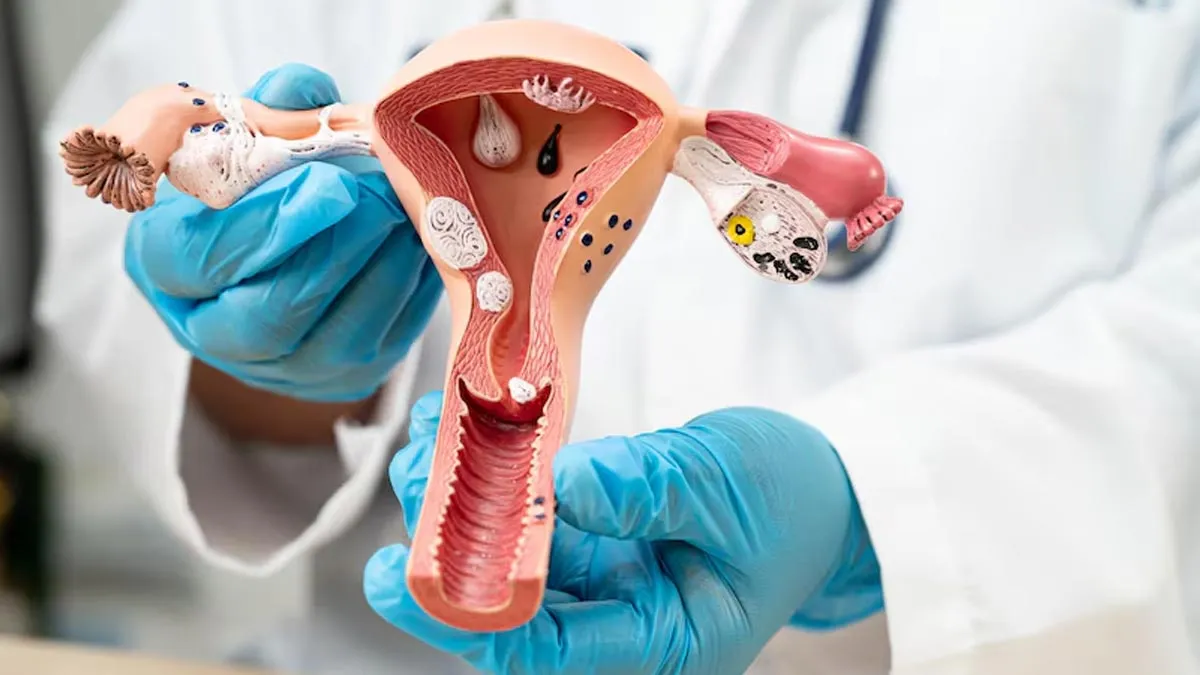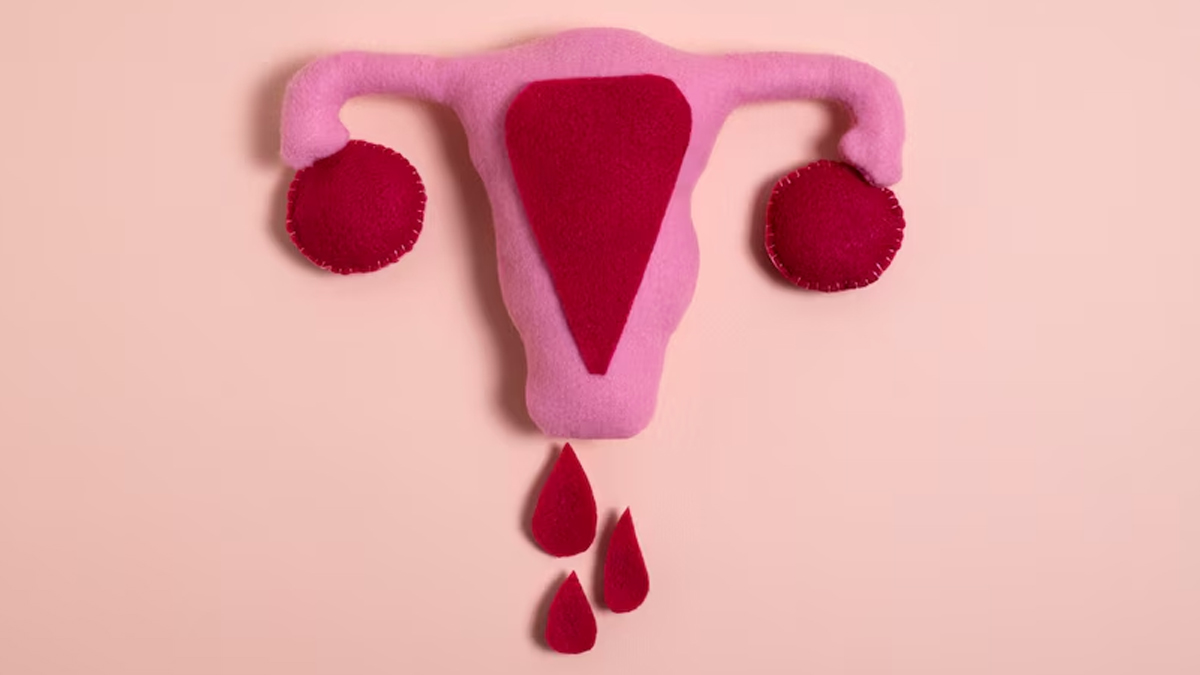
The human body is home to trillions of microbes, collectively known as the microbiome. These microscopic organisms play an essential role in digestion, immunity, and hormonal balance. Among them, the gut microbiome, vaginal microbiome, and placental microbiome are particularly significant for women’s reproductive health.
Table of Content:-
A well-balanced microbiome supports healthy menstruation, fertility, pregnancy, and postpartum recovery. Conversely, an imbalanced microbiome can lead to issues such as irregular periods, infections, infertility, and pregnancy complications. To understand more about this OnlyMyHealth team interacted with Dr Chetna Jain, Director of the Department of Obstetrics & Gynaecology, Cloudnine Group of Hospitals, Sector 14, Gurugram.
Microbiome and Menstrual Health
A healthy gut and vaginal microbiome play a crucial role in maintaining menstrual cycle regularity and overall reproductive health.

1. Hormonal Balance and Menstrual Regularity
The gut microbiome influences estrogen metabolism through a group of bacteria called the estrobolome. These microbes regulate estrogen levels by breaking down and recycling the hormone. When the gut microbiome is imbalanced (a condition known as dysbiosis), oestrogen metabolism can be disrupted, and according to Dr Jain it can lead to:
- Irregular periods
- Heavy or prolonged menstruation
- Hormonal imbalances associated with conditions like PCOS, endometriosis, and PMS
According to Dr Jain, "A well-balanced gut microbiome supports estrogen regulation, which is essential for maintaining a regular menstrual cycle and preventing hormonal disorders."
2. Reducing Inflammation and Period Pain
An unhealthy gut microbiome can trigger chronic inflammation, which worsens menstrual symptoms like cramps, bloating, and fatigue. Beneficial gut bacteria produce anti-inflammatory compounds that ease period discomfort and promote a smoother menstrual cycle.
Also read: Managing Menstrual Pain: Here's How Tomatoes Can Help In Reducing The Pain
3. Preventing Vaginal Infections
The vaginal microbiome, dominated by Lactobacillus bacteria, plays a protective role by maintaining an acidic pH. This environment helps prevent the overgrowth of harmful bacteria and yeast, reducing the risk of:
- Bacterial vaginosis (BV)
- Yeast infections (candidiasis)
- Urinary tract infections (UTIs)
These infections can cause discomfort during menstruation and may even impact fertility if left untreated. Dr Chetna Jain explains, "A healthy vaginal microbiome is the first line of defence against infections that can affect fertility and menstrual health. Maintaining this balance is key to preventing complications."
Microbiome and Pregnancy Health

A healthy microbiome is equally essential during pregnancy, as it supports both maternal and fetal well-being.
1. Impact on Fertility and Conception
A balanced vaginal microbiome, rich in Lactobacillus, creates an optimal environment for sperm survival and fertilisation. Additionally, Dr Jain says that gut microbiome health influences inflammation levels, which can affect egg implantation and early pregnancy success.
2. Role in a Healthy Pregnancy
The placental microbiome plays a vital role in fetal development. A well-balanced microbiome helps:
Reduce the risk of pregnancy complications like preeclampsia, gestational diabetes, and preterm birth.
Support immune function, lowering the chances of infections that could impact fetal health.
"Imbalances in the microbiome during pregnancy have been linked to complications such as preterm labour and low birth weight," warns Dr Chetna Jain. "By nurturing a healthy microbiome, we can significantly improve pregnancy outcomes and reduce risks for both mother and baby," she added.
3. Influence on Baby’s Microbiome and Immunity
A baby's first exposure to microbes comes from the mother’s birth canal, gut, and skin. A healthy maternal microbiome ensures that the baby receives beneficial bacteria, which are essential for:
- Developing a strong immune system
- Healthy digestion
- Lower risk of allergies and eczema
Babies born via C-section may have altered microbiomes, as they miss exposure to vaginal bacteria. However, breastfeeding can help restore balance by providing beneficial bacteria and prebiotics for gut health.
How to Maintain a Healthy Microbiome for Menstrual and Pregnancy Health

To support a balanced microbiome, consider the following steps:
1. Eat a Diverse Diet Rich in Probiotics and Prebiotics
- Probiotics (good bacteria): Yogurt, kefir, sauerkraut, kimchi, kombucha.
- Prebiotics (food for good bacteria): Garlic, onions, bananas, asparagus, flaxseeds.
2. Reduce Processed Foods and Sugar
Excess sugar feeds harmful bacteria and yeast, leading to gut and vaginal dysbiosis.
3. Stay Hydrated
Water helps maintain mucosal health in the gut and vaginal lining.
4. Limit Antibiotic Use
While antibiotics are necessary to treat infections, overuse can disrupt the gut and vaginal microbiome.
5. Manage Stress
Chronic stress negatively affects gut bacteria, leading to hormonal imbalances and irregular cycles.
6. Consider Probiotic Supplements
If struggling with recurrent infections or hormonal issues, Lactobacillus-rich probiotics can help restore balance.
Conclusion
The microbiome is a key player in menstrual and pregnancy health, influencing everything from hormonal balance and period regularity to fertility, pregnancy outcomes, and a baby’s immune system.
Maintaining a healthy gut and vaginal microbiome through proper diet, lifestyle, and probiotic intake can significantly improve reproductive health. This ensures a smooth menstrual cycle, a healthy pregnancy, and a strong start for the baby. Dr Chetna Jain concludes, "A healthy microbiome is essential for every stage of a woman’s reproductive journey, from menstruation to motherhood. By making mindful choices, we can nurture our microbiome and enhance our overall well-being."
How we keep this article up to date:
We work with experts and keep a close eye on the latest in health and wellness. Whenever there is a new research or helpful information, we update our articles with accurate and useful advice.
Current Version
